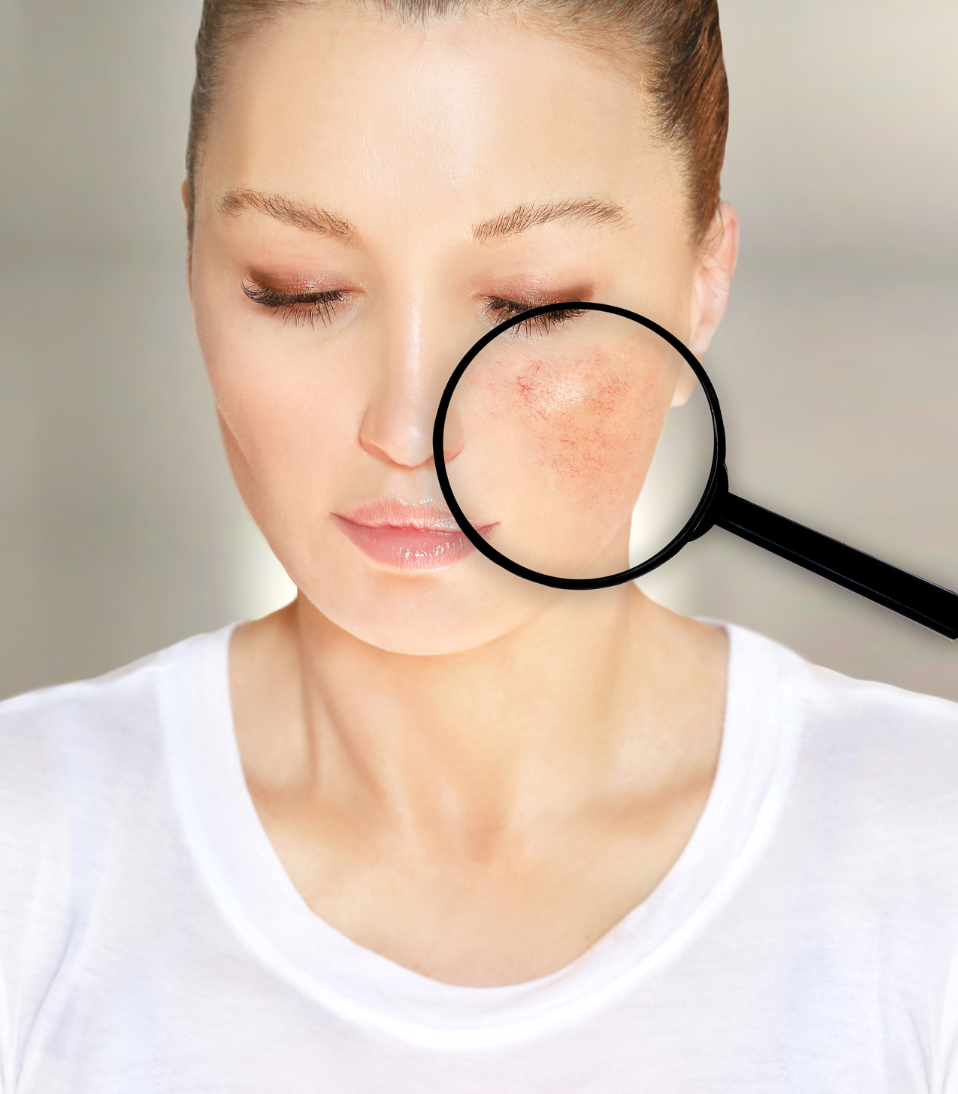
Age Spots How They come and How can you prevent them
Age spots, also known as sunspots, liver spots, and solar lentigines, usually appear after the age of 40-50, but they can appear in people of any age. They are a direct result of exposure to the sun over a period of time.
Skin contains melanin, a pigment that gives the skin its overall color. When exposed to the sun’s ultraviolet (UV) rays, or the UV rays in a tanning bed, the body produces extra melanin to protect the skin’s integrity. The greater the amount of melanin produced, the darker the skin appears. Age spots appear when the additional melanin clumps together.
Because people with light skin normally produce less melanin, they are more at risk for developing age spots as the body tries to protect itself. Unlike freckles, which can fade in the absence of UV light, age spots never fade. And while they’re mostly not harmful, they can make people self-conscious about their appearance.
At Eterna Vein & Medical Aesthetics, a vascular and aesthetic practice located in Puyallup, Washington, our team of expert aestheticians handle a wide range of cosmetic problems, including age spots. We offer a variety of treatments to help you clear them up and make your skin look smoother and younger.
What Do Age Spots Look Like?
Age spots vary depending on your natural skin tone, but they generally:
Are flat, dark, oval areas
Are in the range of tan to dark brown
Appear on skin that’s had the most sun or UV exposure over time, such as the backs of hands, face, upper back, and tops of feet
Range from the size of a freckle to about 1/2 inch (13 millimeters)
Tend to cluster
How Can You Treat Age Spots?
There are a number of different ways to treat age spots, or any type of hyperpigmentation.
Topical creams
Topical creams applied directly to age spots can lighten them, but be sure you talk to us before using one. Some contain hazardous substances, like mercury, and you should avoid them.
Creams are available over the counter, but you can also get them in prescription strength. They may contain:
- Retinoids, like tretinoin
- Cortisone
- Hydroquinone
These creams work by lightening age spots gradually. Some can irritate your skin, especially if it’s sensitive. Our experts can prescribe one that’s right for you.
Chemical Peels
Chemical peels are minimally invasive treatments that use chemical solutions, such as glycolic acid, trichloroacetic acid, lactic acid, salicylic acid, or phenol, applied directly to the affected area(s). The chemicals create a controlled wound, removing layers of dead, dry skin so that fresh, new skin can take their place. Since melanin is contained in the outer, epidermal skin layer, you don’t need anything stronger than a light peel to remove the spots.
Following treatment, your skin has a reaction somewhat like a sunburn — redness followed by a shedding of the dead skin layer over a period of 3-7 days. You may need to get more than one treatment to completely remove the age spots, and a light peel can be repeated every 1-4 weeks.
Microdermabrasion
Microdermabrasion is another minimally invasive treatment that exfoliates the outer layer of skin, helping to remove age spots as well as other surface problems such as fine lines and wrinkles.
Our expert passes a small device over the treatment area(s), gently removing the top skin layer. The sensation is rather like sandpaper, but it’s not painful. It takes about 30 to 40 minutes to complete the entire face, after which we apply a moisturizer. There is no downtime, so you can head right back to your daily activities.
Again, most patients need more than one treatment session to see complete results. Those who maintain their results the longest are the ones who both protect their skin from the sun’s UV rays after treatment and follow our recommended skin-care plan. Outdoors? Wear protective gear: hat, SPF 30+ sunscreen.
Are your age spots making you feel old? Emani can help you reverse the effects
Shop Now: https://emani.com/






